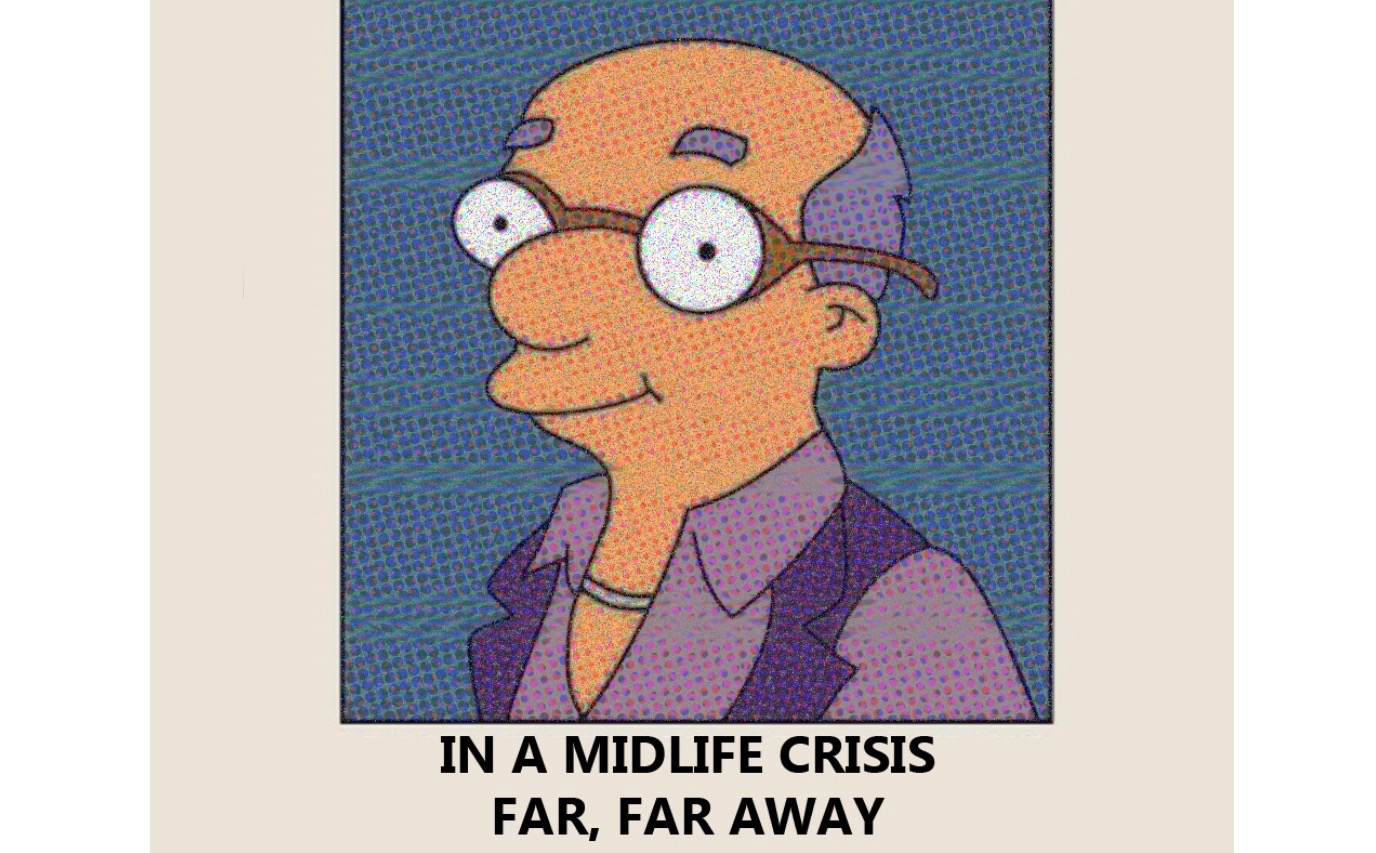
IN A MIDLIFE CRISIS FAR, FAR AWAY
Words: Bernard S. Hobson
Artwork: Bernard S. Hobson
A reflection on what I see, when I hold up the mirror of Joseph Campbell’s Hero’s Journey.
Here we go lads!
In the 1993 film Falling Down; a man named Bill Foster, oblivious to the fact that he is clearly not right, rampages across Los Angeles with a bag of guns and a bad attitude. All to find his daughter, who his ex-wife is literally hiding from him, his temper and his great, bulging bag of guns.
Bill does this because he believes it is the right thing to do.
What a man. We’ll get to him later.
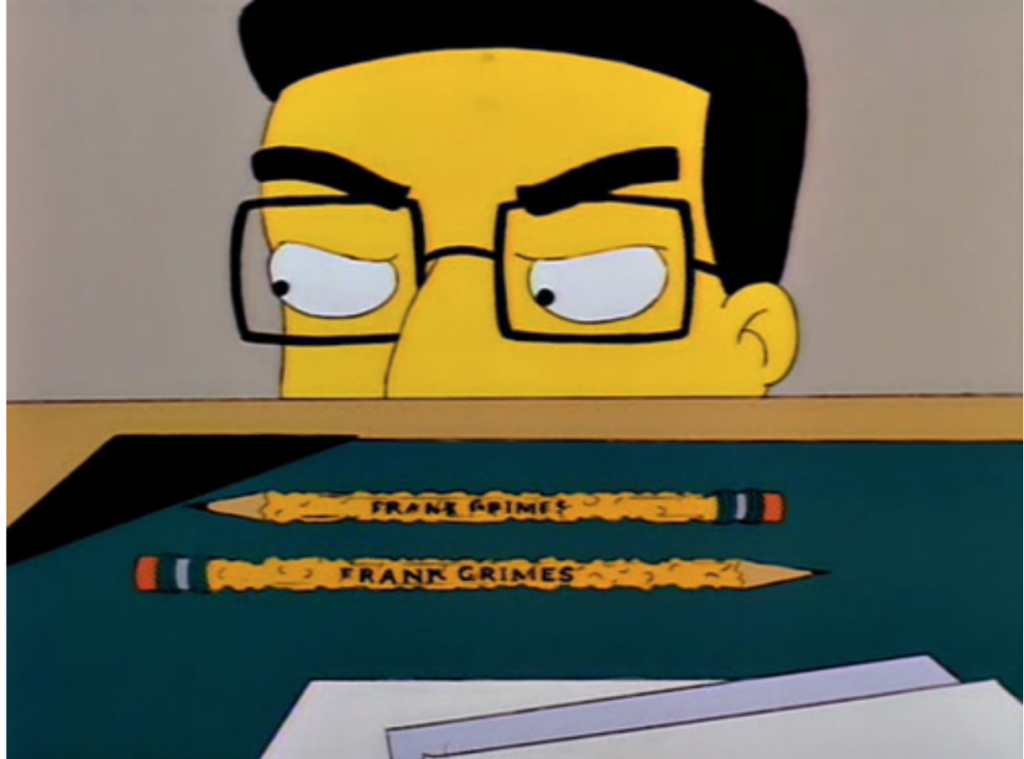
But first, a quick bit about a conversation I once had with a woman.
During this conversation she made a point on why she thought some marriages fail. She said something along the lines of:
“…people, more often male- they make all these decisions for their marriages and the good of their families. One day they realise they haven’t made enough decisions for themselves as individuals. They just wake up and they don’t know who they are anymore, and because they got to this point doing this for other people, they can’t define themselves as an individual. Because they have up to this point been defined only by a relationship, they can’t change anything without harming this relationship.”
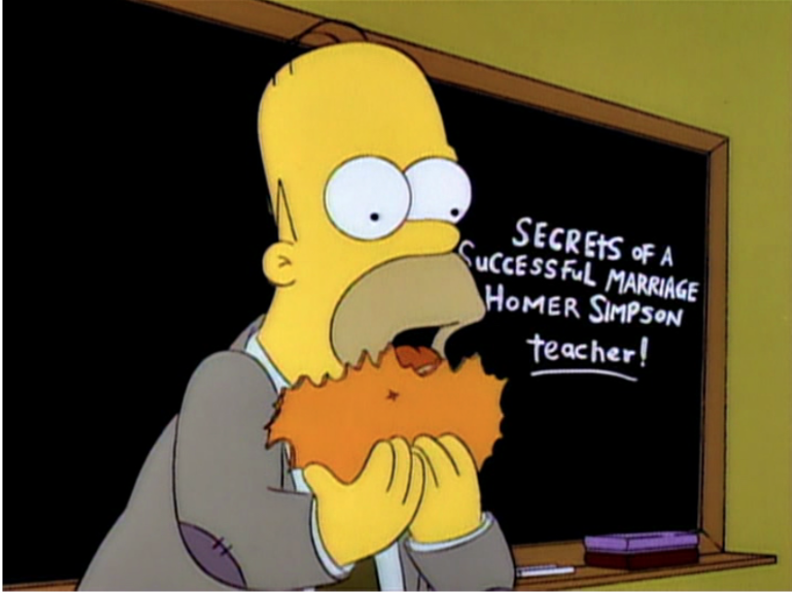
What she was telling me about was a phenomenon we all know as ‘The Midlife Crisis’. A catastrophic splitting of the nuclear family made cool somewhere around the 80s by young blondes, double breasted suits and convertibles. Existing, I believe in no small part due to Joseph Campbell’s ‘Hero’s Journey’.
If we understand a male journey, by way of the Hero’s Journey, to be one of acquisition (more on that later). We can see that males are not making decisions for themselves, they are instead making sacrifices for others. Sacrificing for their family, their friends, their job etc.
However, this sacrifice, or ego death (more on that later) is ultimately for themselves, not anyone else. Because it is the promise of at least equivocal return that sets them down the road in the first place. And the Hero’s Journey rewards ego death greatly.
Now, to be clear I am not suggesting that all men inherently seek relationships as some form of transaction. Nor do I wish to imply that all men simply laud over material acquisition as some great, ultimate goal.
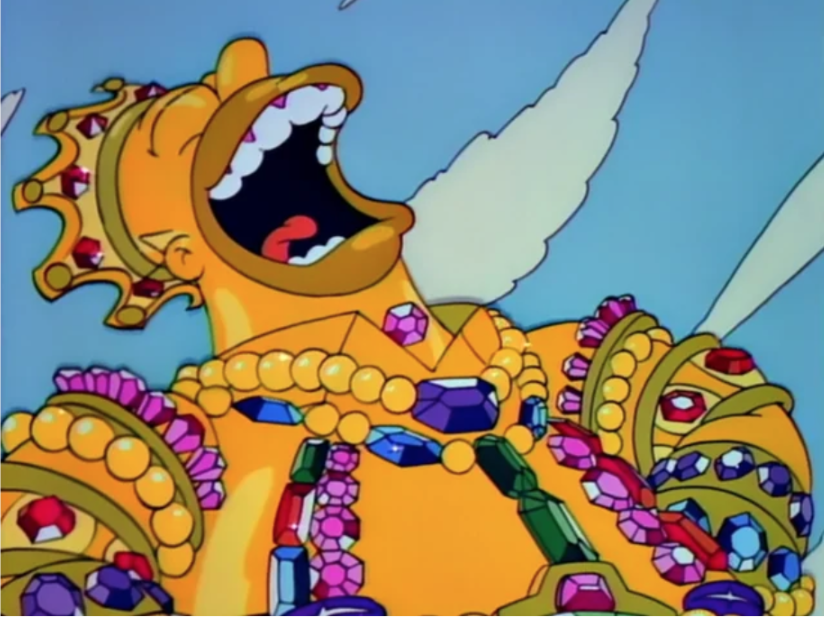
But they are definitely things that people do.
Personally, I feel these things usually land somewhere in the middle, especially if you take the time to understand them. So, after scouring the depths of my own personal shame, here’s an example from my teenage years:
I had a big crush on this girl, but I was an emotionally immature boy, so I struggled to express this. Instead of simply communicating how I felt I did something really cringe. I tried to get her sympathy by being mopey and sad and brought up unpleasant things that had happened to me. It became a kind of sad, alternate life that I lived when I was with her, sharing this side of me I had cooked up for this one person.
By showing her I was a troubled, complex male I expected her to return with a kind of caring affection. It would bring her closer to me, and just like the movies, we would kind of fall in together.
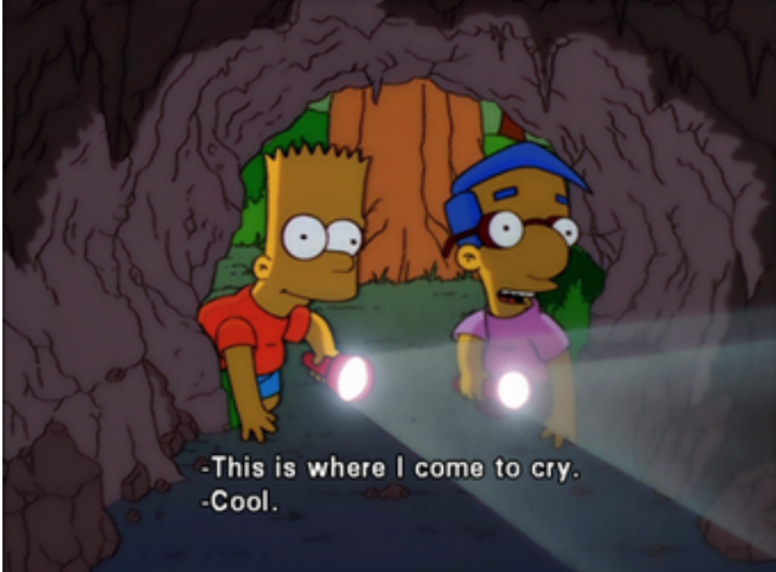
Weirdly this did not happen.
While she did care more for me, the dynamic was toxic, dishonest and immature. I became resentful that I was not getting the result I expected, and of her. And no doubt she resented my needy, whinging, teenage-ass a bit too.
Ultimately, she did the right thing and distanced herself from me.
And, I like to think I’ve grown since then.
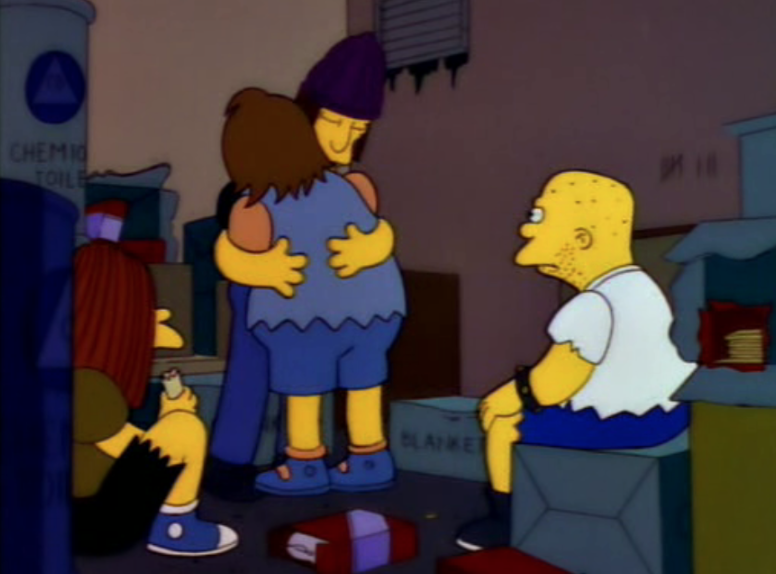
Anyhoo-
Why talk about this?
Because essentially, I was inspired by movies and TV shows around me. I had learned- incorrectly, that to get a girl to like you, you have to get her to feel sorry for you.
Because in the media I watched, the jock-jerks don’t get the girls, nor did the pizza-faced nerds. It was the rebellious, complex outcast who the girl fell for because of his troubled past.
I imitated these characters in the sense that I was a teenage bad boy… I smoked, I skipped school a lot, I drank and I skated. I was a teenager who decided he was a bad boy, because he liked that image. So, I gravitated to the characters in the media I watched, conjuring some deeper, more dramatic reason for this behaviour other than ‘I wanted the attention’, I gave myself complexity. Copying and pasting my teenage self from these images I saw.
The Youtuber ‘Maggie Mae Fish’ has a great video about Joseph Campbell, how his Hero’s Journey influences so much around us. Also how Campbell defended the Nazis. I’m gunna pinch a bit of it here for my own thing, but if you like the subject check it out- it’s great.
Basically, Joseph Campbell read this book called ‘The Golden Bough’ and from that he got the idea of the monomyth. That there is ONE universal story, called the Hero’s Journey. Many of you have seen, heard of and know of this thing, it’s taught in schools and in universities. Maybe more famously it’s the formula for a lot of Hollywood films- for Star Wars and a lot of the MCU. It is a powerful and very useful narrative tool that Campbell argues is the foundation of human storytelling.
To be clear I am not knocking the Hero’s Journey on the whole… god that sounds dirty. I think that storytelling formulas are essential and as one of these it is good. It’s just, as a monomyth? I’m not a fan.
But what is a monomyth?
A monomyth is a universal story, which Campbell literally argues that Buddha is just Jesus with extra steps. Ignoring how Buddha predates Jesus, he explains- on camera. How basically all pre-Christian storytelling and symbols are just Jesus. Essentially ending on the point that there is no common ground, shared between cultures…
But there is ONE RIGHT CULTURE. One single, unifying Monomyth.
Let me explain:
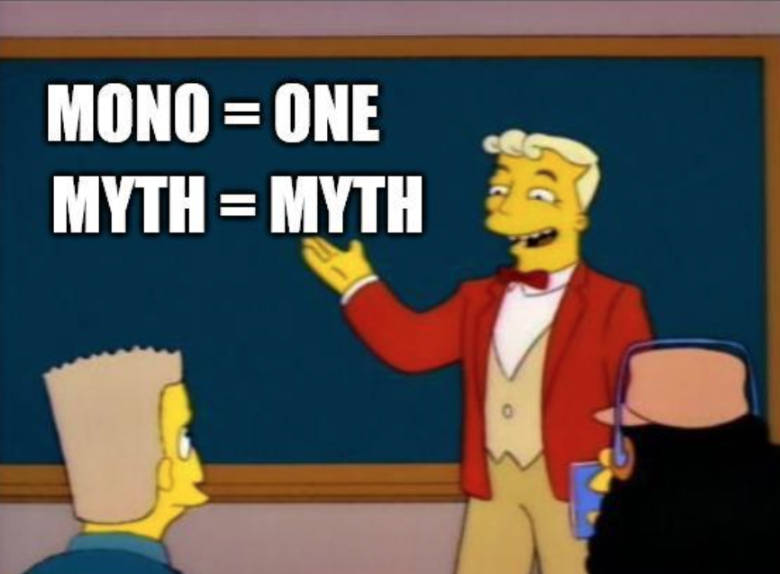
What Campbell is saying is that without Jesus, primitive humans desperately attempt to create him out of whatever they have. It’s this weird compulsion.
It’s the literary equivalent of everything being destined to evolve into crabs… except the science is… ‘just God’… which might have cut it, you know, before the invention of the radio… but buddy, we’ve got Netflix now, and times have changed.
Following Campbell’s bold notion that it’s always been Jesus, the essential Ego Death and Resurrection of his monomyth becomes blaringly obvious. As a hero, says Campbell you must sacrifice yourself. And here we have the essence of the monomyth.
The Hero’s journey basically just remakes Jesus as the main character in everything. The objective fact that these stories not only mostly predate Christianity and Abrahamic Religion. But can be traced along a theological evolution, following human civilisation back to our ancestors in Africa, is all irrelevant to him. He ignores it, because it doesn’t fit into HIS monomyth.
To Campbell, it always was Jesus and always will be. Because this is the lesson of his own personal faith and belief system that he has projected onto the entire of human history.
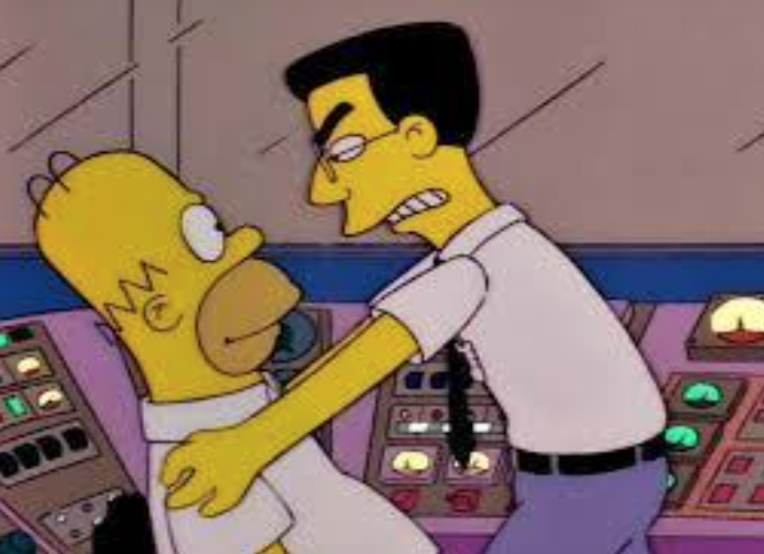
“IT WAS ALWAYS CRABS, ALL THE WAY DOWN.”- Joseph Campbell, probably.
Not only does this reduce the collective experience of human storytelling and history, to all being about Jesus. But it more importantly makes it all about men being Jesus. For, you see, in Campbell’s world, women cannot be heroes, because in Campbell’s words they are too busy being:
“The place that everyone is trying to get to.”
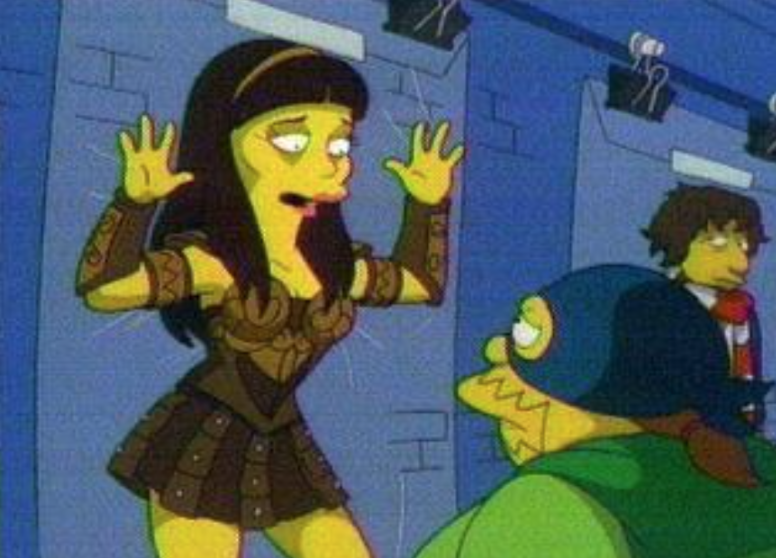
This Must Be the Place
Personally, as a man, I can say with certainty I’d rather be Jesus than ‘the place that everyone is trying to get to’.
It just feels like a far better deal. Sure, I have to die. But I am reborn as a hero… If I sacrifice, I will be rewarded. If I make hard choices, they will pay off. If I reject my community, friends and loved ones for my own selfish needs, I will be redeemed and reborn. I may not get a lot of emotional range, but as Jesus I not only can stand up when I pee, but I can be the main character too.
As a woman I am stuck being whatever the hell millions of Jesus’s project onto me… which is not ideal. I mean, as I understand it Jesus didn’t know a lot of women, there was Mary and the other one… whatever her name was…
*Googles briefly*
-Also called Mary.
Fuckin’ Mary Magdalen, of course!
Can you imagine, going through all the trouble to get the story of Jesus and then just not bother to give the ONLY TWO WOMEN in his life different names? I guess they weren’t important enough. Isn’t there a rule in storytelling about not giving main character’s similar names unless they ARE the same person?
*sigh*
You see Marge:
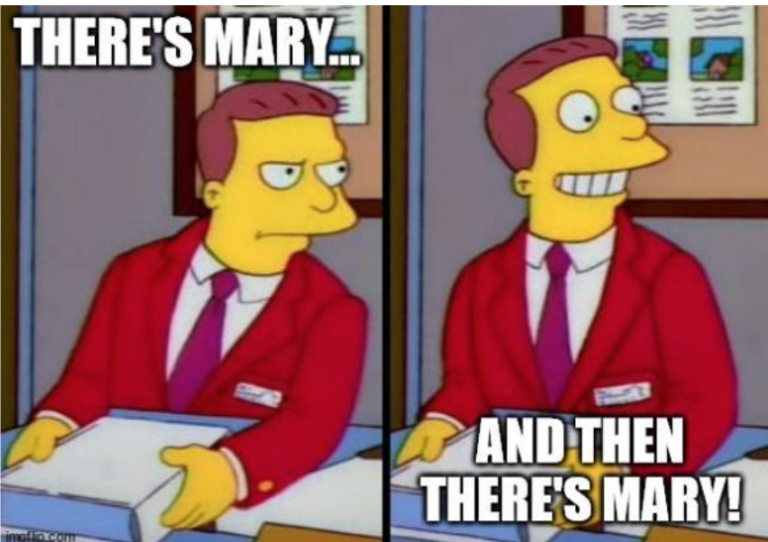
Anyway. It’s time we talked about Star Wars.
I know, I know, but bear with me here-
Luke Skywalker’s story was quite similar to a certain young carpenter’s discovery HE is the chosen one. But later Star Wars films would take the similarities further, literally using ‘immaculate conception’ as Luke’s Father, Anakin simply congealed one day in his Mother’s womb…
And while Anakin falls to the temptation of the Devil- who is also the President of Space or whatever the hell. It basically runs off Luke, the main character of films four-six being the second half of Anakin, the main character of one-three’s redemption arc.
Both The Father and The Son become the same person… sound familiar? Furthermore, we can see Anakin’s final death as a sacrifice to vanquish The Devil, who is now the Emperor of Space and bring about the ultimate promise of peace and prosperity.
Hooray!
This is all well and good if you’re a John Doe like me- but what are the Janes supposed to do in space?
*Insert Barberella zero-gravity undressing sequence here*
There Will be no Shag Carpet in a Galaxy Far, Far Away.
Enter Leia, the spicey princess draped in white. Leia is very likeable, but is ultimately the prize of Han Solo, who for a while competes for her with Luke Skywalker. Luke does back off when he finds out she’s his sister… which is not very Old Testament of him, but I guess God works in mysterious ways. So here we realise that Luke can’t get a woman like Han does- as an object of desire. Because Jesus doesn’t do this, he gets a mother and redeems a ‘lady of the night’.
So, while Princess Leia becomes Han Solo’s prize, she becomes Luke’s Sister, who mothers him. Which is all cool because God was into that. Ultimately, in Campbell’s great monomyth, women are mothers, prizes or villains…
I mean- we all know what ‘place’ Campbell is ‘getting to’ when he talks about women.
The ‘place’ is the vagina. In case you didn’t get that. For some nice, Godly procreation.
Just look at Padme- Anakin’s girl and Luke’s Mother or ‘Mom’ as they say in space. Padme is literally the Queen of an entire planet and an intergalactic politician. But do we see her doing anything political or regal? Hardly, she has body double who does all of the work for her, until after the double dies Padme just follows Anakin around, while he works on err… ‘getting to her place’. For some nice clean off-screen procreation.
Like honestly, what the fuck is Padme’s arc in any of the three films she is in? Giving birth? While she’s preggo she gives Jar-Jar Binks, the comic relief, her entire job. Which means Jar-Jar, does more for the planet, than the QUEEN OF THE PLANET.
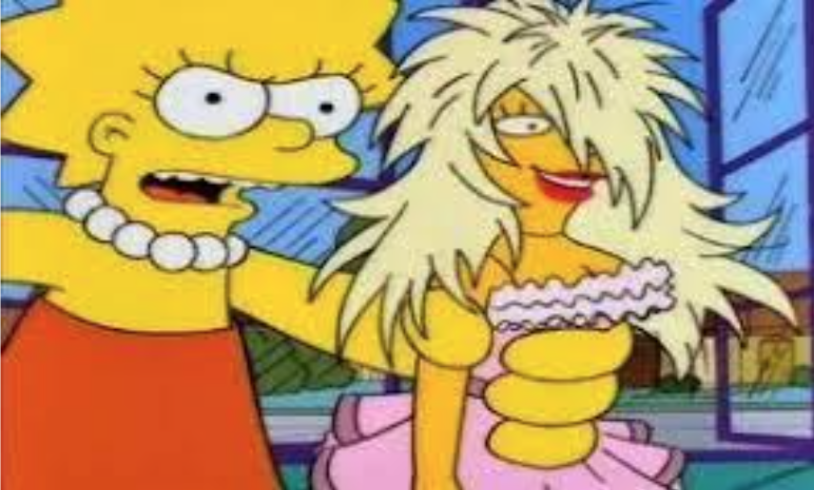
It’s being a reward for Anakin, getting preggo, giving birth and then dying. That is her entire arc.
To think, they had Natalie Portman, who at age twelve upstaged both Gary Oldman and Jean Reno in ‘Leon the Professional’ play a character as two dimensional as Padme…
‘I hate sand… It’s so coarse’ – Anakin Skywalker, literally on his way to Padme’s Vagina*
(*you have to capitalise important places).
Get Some Sand in Your Eyes
There’s a great offhand joke by comedian Katherin Ryan, where she describes Home Economics as ‘Economics, but for girls’. And in a world that constantly projects what women should be onto them. It’s a great, self-aware bit I try to keep close.
Thanks to Campbell, girls are heroes when they are defined by men. Because in his system, it’s masculinity that defines heroism. And well, we already talked about what that is- on another note, have you noticed how both Joseph Campbell and Jesus Christ have the same initials?
Witness the miracle of Joseph Campbell. Behold how all he touches turns to Jesus!
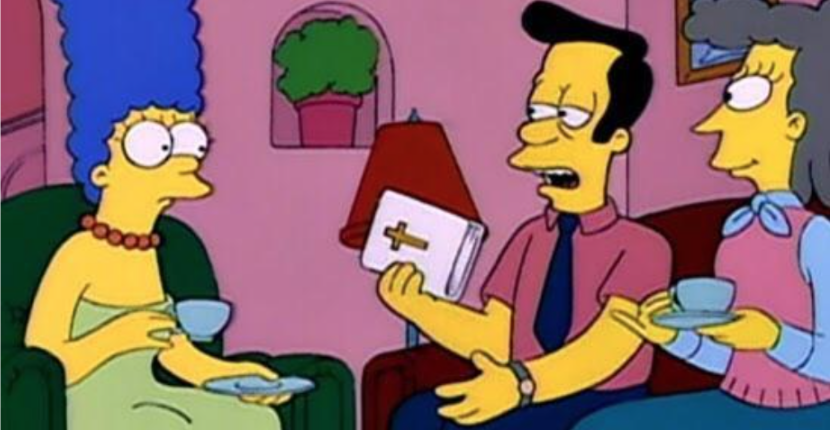
It is the same logic that dresses women provocatively in catsuits; that also makes them indestructible heroines. Superheroines and heroines are basically just men, with cleavage, butts and hips for days. It’s the same story, just with a bit of a perve written in for us blokes to gawk at.
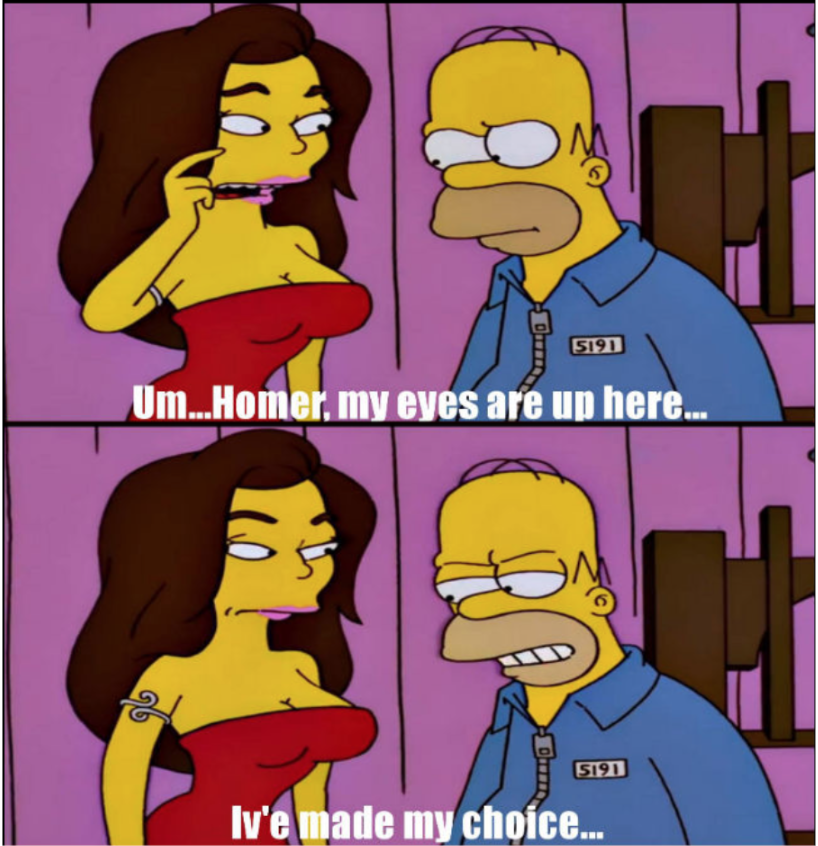
This is, I think really, why men react so negatively to many ‘strong female leads’.
Because they’re missing what the male gaze would otherwise give them, a place in the Hero’s Journey. And without that the character can’t take us far. They often feel bland, not because they’re women, because they’re just badly written.
So, how do women struggle? Well, as a thirty something white male, let me tell you all about it, Darl.
In trying to fit them into Jesus’s story- which was, to use the parlance of our times, ‘a few birds short of a flock’. We find women fitting into two roles, which I call the two Marys. The first Mary is the chaste, immortal, infallible and benevolent Mother of Christ. The second is the flawed, broken, self-hating sex worker/prostitute (depending on which side of 2016 you are sitting on), Mary Magdalene.
The first represents a feminine side to Jesus as The Son of God. And explores his incorruptible, immortal nature- Both Leia and Padme from Star Wars, but also characters like Mrs. Weasley and Captain Marvel all do this.
And the second, explores woman’s treacherous nature. Their propensity to be corrupted by snakes, betraying God and his rad garden subplots—PUN INTENDED (you’re welcome). Basically how God is great because he gives those sneaky, sinful women a chance to be cool. And Mary Magdalene is the wicked, damaged sinner who is resurrected and ultimately reborn, given purpose thanks to Jesus being like:
‘Hey, come on girl’
So, Magdelin can redeem herself, but only by surrendering herself to the ideal of the Mother. Only then can she be worthy of Jesus- which is me, as I am the man, or I Campbell… or basically anything with a willy-
Just quickly too, there’s something so ‘un-phallically (a word?) charged’ about ‘willy’… it’s like mashing ‘soft dick energy’ and a better way of saying William, together into one childish word.
Anyhoo-
A Hero’s Death
At the end of the 1993 film Falling Down, before William (Bill Foster) is gunned down in what is referred to as ‘suicide by cop’. Bill makes the tragic realisation that basically everything he has done has been the wrong thing. That the whole time, his story has been one of somebody trying to outrun a terrible world they built around themselves. And I think there’s a deeper realisation that this is ultimately his own fault, because of the choices he made.
The whole movie is basically, “Bill Foster Presents: Man Getting Hit by Football”
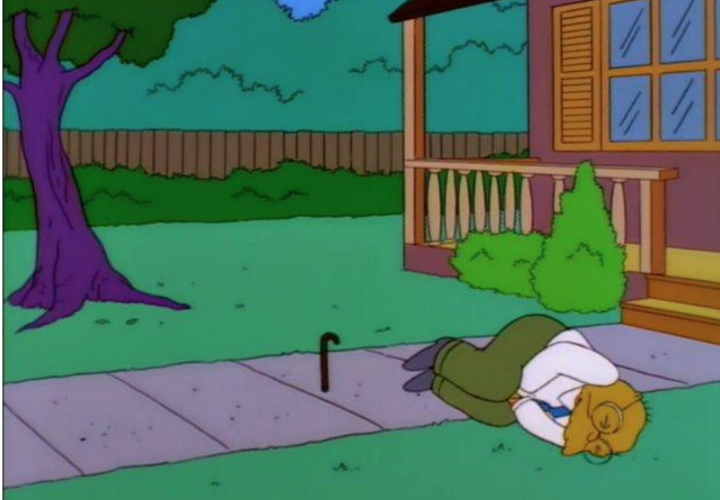
That Bill Foster resonates with so many people- seriously, read reviews/comments for anything to do with this film. It’s about as open minded as a thread on Rhodesian Nationalism.
I think what really attracts people- particularly white men, (to Falling Down, not Rhodesian Nationalism), is that his journey is essentially THEIR MONOMYTH. They are the ‘heroes’ who got left behind on a fantastical journey that doesn’t represent real life. In a dream that makes them the most important thing in the world (just want to be clear I am still not referring to Rhodesian Nationalism).
Picture it: Man gets job, gets girl, gets children, man gets promotion, gets bigger house and so on and so forth. Every action is made for a reward. Bill’s realisation, ‘Wait, I’m the bad guy?” is genuinely sad. Because it’s what we’ve (hopefully) really known the whole time and it’s clogging forums because so many dudes have been taught to see him as a hero.
I worry for these dudes, because Bill couldn’t accept a life outside of the system he believed in.
Not like, a government system, but a hidden system of abstract, fantastical promises. A system that at best is gambling on your life and at worst is a complete and utter lie of a life. Even good men like the lie. Because the lie promises all men a role as the main character of a movie, a chance at being The Son of God. With stakes like this, it’s easy for ‘good people’ to ignore how a monomyth affects other people.
After all, sacrifices must be made. And egos must die.
And there is no greater sacrifice than the ego death. Just ask Campbell. The ego death is the self-surrender of the sense of self and identity. The ego death for many men, is simply waking up one morning and not knowing who you are anymore.
Sound familiar? Sound midlife crisis-ey yet?

Because men keep setting themselves up as the main characters, this ego death has become a defining piece of the male experience. We basically all have a Jesus Christ arc in our pockets we can fall back on to instantly get meaning in life.
Because, with Jesus as our superegos, we don’t really need to change and we don’t we need to learn. Because we can just sacrifice and resurrect until we aren’t anymore.
The journey for women is different. Without that Jesus-ey superego for them to fall back on, there is no reassurance telling them:
‘You’re just brilliant the way you are, it’ll all work out in the end’.

We can see this everywhere, but it is no more obvious than in fashion. Tom Wolfe once observed how men’s fashion hasn’t changed its silhouette in over a century. Whereas he pointed out, women’s fashion can change silhouette entirely within a month. The fact that as a male, I could just wear the same suit every day and not worry about what anyone thinks is a massive thing. I can’t imagine how different I would be if I worried about all the things my partner does before she goes out of the door.
Because as a man, like it or not in this regard, culture judges me more favourably. I don’t need to change anything, because I’m already brilliant.
The message to women, from where I’m looking seems to be one of constant change. One of endless, external definition. The closest thing I can think of as a man, is the midlife crisis. But even if I wake up and don’t know who I am, I can still just choose to be the main character, I can still wake up and be the master of my own destiny.
A woman, I suppose, still has to wake up a woman.
And there I go, projecting again…
Sorry.
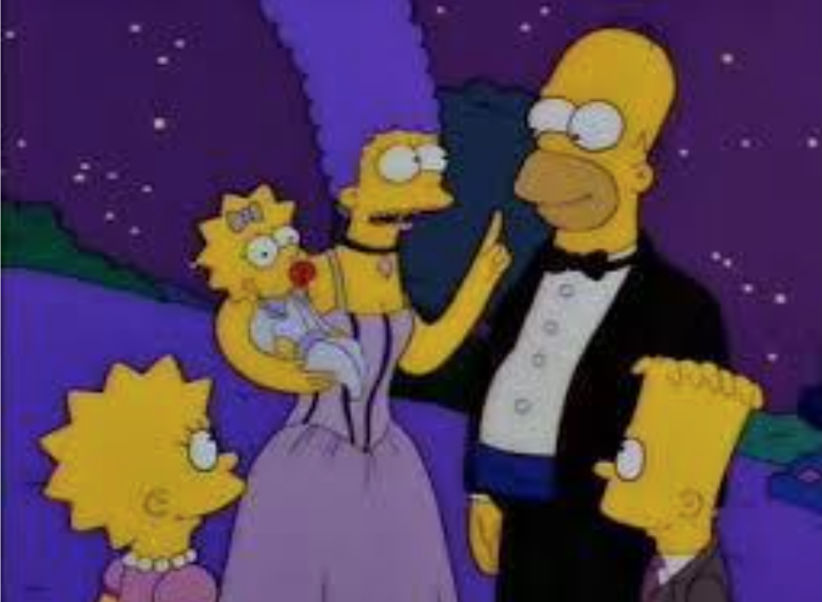
For More: ‘200 Channels and Nothing But Cats’

0 comments